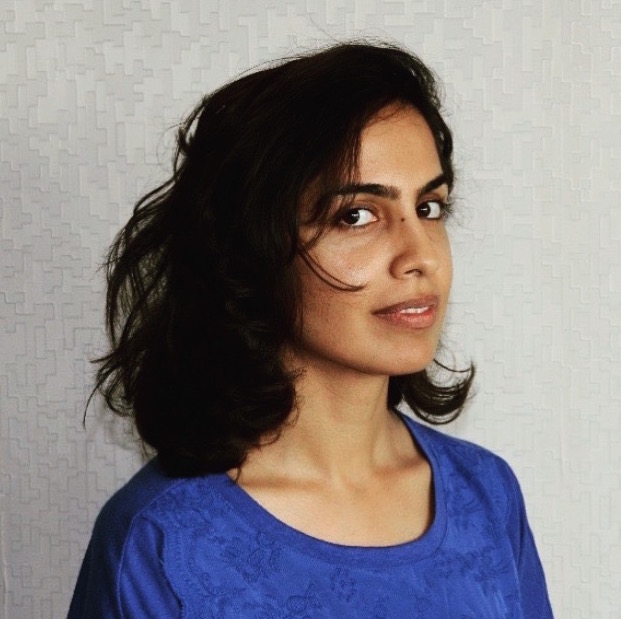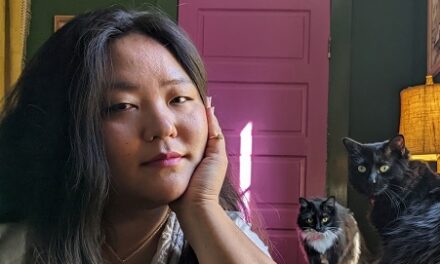Assistant Editor Molly Reid: In Mahreen Sohail’s hybrid piece, “Iddat,” a definition evolves. What seems initially to be prohibitive—a list of men a widow is required to avoid during the prescribed Islamic period of mourning—becomes celebratory, a reclamation of self. With incantatory grace, Sohail takes us into a pleasantly shaded corner of what might be called The Current Disappointment with Men.
To hear Mahreen read her piece, click below:
Iddat
by Mahreen Sohail
A widow’s act of not seeing, meeting, talking to, or coming close to men she could one day marry or could have married in the past, including but not limited to
your driver, your nephews, your late husband’s friends, your sister’s husband, your neighbors’ husbands, anyone’s husband, men not related to anyone but still men, the welder, the electrician, the gardener, the plumber, the solar-panel expert, the father of your maid, anyone’s father except your own, and of course this does not include your brothers who are also fathers now, or your cousins who are like brothers but are also fathers now, any man on the street, any man in the house, even burglars
Not regressive, this act of shutting out lasts four months, ten days, after the passing away of the woman’s husband. She must grieve what she has lost, and what have these men (listed above—generic) ever given her? The driver is late every morning. The nephews never come. The late husband’s friends came to the funeral and said Sorry in serial shock like sorrysorrysorry until she thought she would prefer to go in the ambulance to the graveyard and sorry herself into the grave with the late husband. The sister’s husband drinks away money. The welder ruined the new gate. The electrician stole 1,000 rupees. The gardener planted the wrong cabbage. The solar still doesn’t work, so when the electricity goes she is plunged into the dark for hours. The maid’s father comes on behalf of the maid to say the widow is like his daughter—is the widow okay? The brothers bring fruit; the cousins bring old stories. Even these are unwanted.
The insistence on solitary grief is a respite for the widow. It means she can wallow, pray, laugh. She uses the period of one hundred and thirty days to make the house hers again, to become fat, after the long arduousness of thinning during love (in love?), in love with the dying—now deceased (relief) husband.
Mahreen Sohail’s fiction has appeared or is forthcoming in the Pushcart Prize Anthology (2018), A Public Space, The Masters Review, Post Road, and elsewhere. She was previously a Charles Pick Fellow at the University of East Anglia in Norwich (UK). She lives in Islamabad, Pakistan.
For more miCRo pieces, CLICK HERE.












